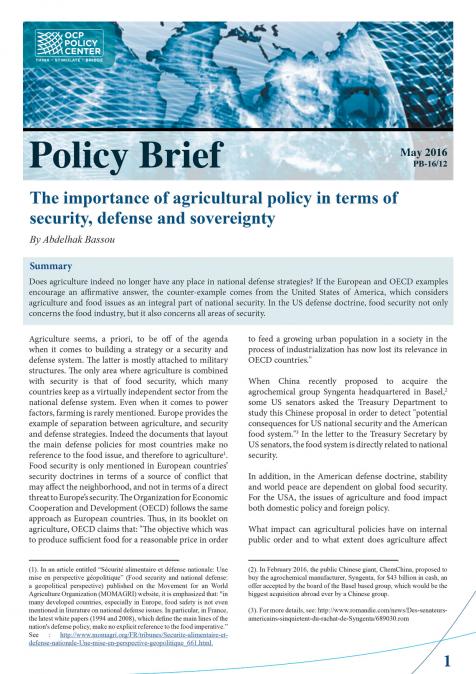Publications /
Policy Paper
We are living through unprecedented times. The COVID-19 pandemic threatens not only our health, but the very foundation of life itself: our food security. Now more than ever, we are forced to rethink our food security as we witness the widespread dislocations to our food system, forcing millions to beg for food for the first time. During normal times, our world produces enough nutritious food for all but millions still go hungry every day. Why does this happen and what can be done to end this scourge? Nearly 75 years after the end of the Second World War, since when many countries have pursued policies to achieve food security, it is befitting to take stock and ask ourselves what has been achieved, at what cost, and what have we learnt that can help us better thrive in a post COVID-19 pandemic world. Many countries, with different political systems, and at different levels of development, have equated food security with food self-sufficiency (FSS) and/or food sovereignty (FSY). The common element in these countries’ approaches is the belief that producing domestically all of the nation’s consumption of basic food makes a country food secure: the country retains control over its food supply and therefore is not vulnerable to the vagaries of international trade, in particular import price spikes, political economy disruptions, and natural and man-made (including public health) disasters elsewhere in the world. FSS has been equated with national security itself. In distinguishing means versus ends, FSS is a means of achieving the end or the desired state, which is food security. FSY is also concerned with retaining control, but in this case, it also includes control over a country’s preferred approach to agricultural and food policies. FSY asserts that the country does not want its food supply and its agro-food policy approach to be subjugated to foreign corporate interests. In both FSS and FSY, the use of trade protection in some form is central.











